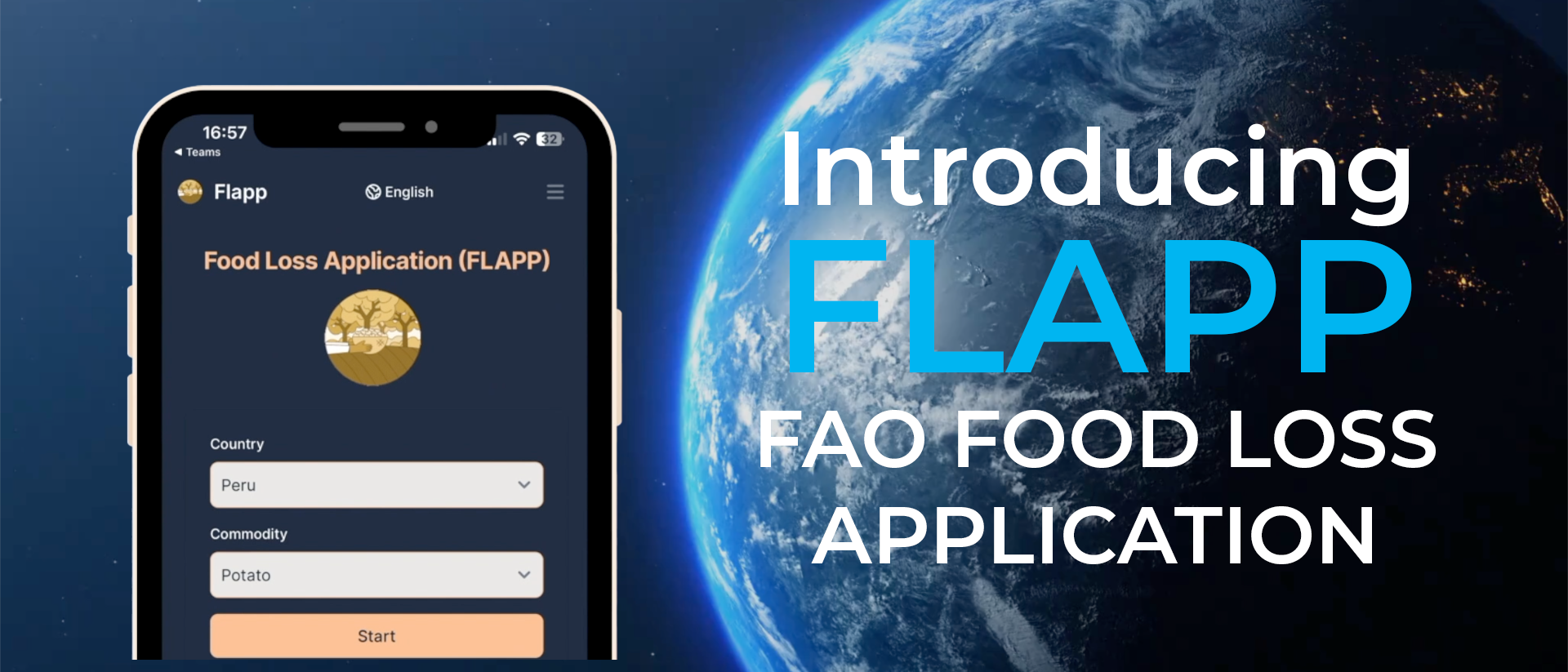Exploring FAO’s Food Loss Application (FLAPP): Tackling food loss in the Near East and North Africa

The Food and Agriculture Organization of the United Nations (FAO) is organizing a virtual webinar on Monday, 12 May 2025, from 10.00 to 11.30 AM (Cairo Time), to explore challenges and opportunities for deploying the Food Loss App (FLAPP) in countries of the Near East and North Africa (NENA) region. The event, titled "Exploring FAO’s Food Loss Application (FLAPP): Challenges and opportunities for support tackling food loss in the Near East and North Africa (NENA) Countries," will bring together representatives from FAO headquarters and regional offices, government institutions, research and academic institutions, and food value chain actors including farmers, producer organizations and agribusinesses.
The webinar takes place in a year of special significance for FAO, as the organization marks its 80th anniversary amid growing global concern over food security, environmental sustainability, and the efficiency of food systems. Today’s food systems face mounting pressure from rapid population growth, urbanization and shifting consumption habits. These pressures not only threaten the sustainability of food production but also expose critical inefficiencies, including the significant amount of food lost or wasted throughout the value chain.
Globally, an estimated 13 percent of food is lost between harvest and the retail stage, representing up to USD 400 billion in value, while an additional 19 percent is wasted at the retail and consumer levels. In total, these losses contribute to 8-10 percent of global greenhouse gas emissions and reflect a major waste of natural, economic and human resources. In the NENA region, approximately 15 percent of food produced is lost before it reaches retail markets. Up to 68 percent of food losses in the region occur during the early stages of the supply chain, during production, handling, processing and distribution, while around 32 percent occur at the consumer level. These figures are especially troubling in a region that continues to struggle with food insecurity and malnutrition.
In response to these challenges, FAO has launched several initiatives to promote sustainable food systems. Among them is the Food Loss App (FLAPP), a digital tool introduced in September 2023 to help farmers and stakeholders monitor, measure, and reduce food loss at the producer level. FLAPP provides users with accessible video-based advisory content on food loss prevention and allows crowd-sourced data collection to identify causes and trends. It also supports evidence-based decision-making by enhancing data availability on food loss and informing targeted actions for reducing inefficiencies across key value chains. Already deployed in more than 36 countries and covering 13 commodities, FLAPP is designed to evolve and expand as more users engage with it. While the current focus is on on-farm losses, future iterations of the app will cover broader segments of the value chain.
The upcoming webinar aims to initiate FLAPP’s rollout across the NENA region by deepening understanding of the app’s functionalities and gathering valuable feedback from countries and partners. In particular, it will examine the app’s relevance to NENA countries, address challenges such as the need for Arabic language support and data availability and explore how the app can be adapted to the most pressing national and regional needs. Participants will also discuss how to align FLAPP’s deployment with regional efforts to reduce food loss, promote sustainable agriculture, and enhance food security.
The event will feature perspectives from FAO experts and technical officers, who will share updates on global and regional initiatives, the role of postharvest practices and supply chain actors, and how digital tools such as FLAPP can improve food system efficiency. The webinar will include a presentation on FLAPP’s scope and features, followed by a dedicated question-and-answer session and an open discussion to identify priority value chains, assess data availability, and develop a collaborative action plan for future deployment.
This timely event reflects FAO’s continued commitment to supporting countries in their efforts to reduce food loss and waste, in line with Sustainable Development Goal 12.3, which calls for halving food waste and reducing food loss across the production and supply chain by 2030. Through initiatives such as FLAPP and active regional engagement, FAO aims to strengthen national capacities, improve policy and institutional frameworks, and accelerate progress toward sustainable and equitable food systems in the NENA region.
